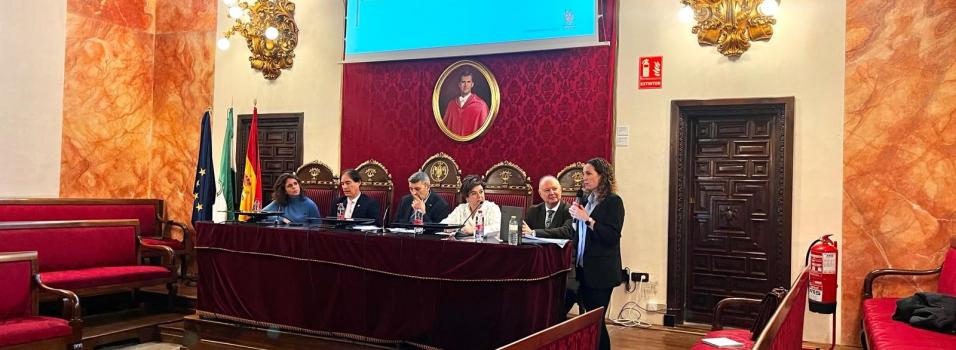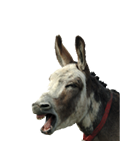Equine protection organizations, veterinary colleges, SEPRONA and the General Directorate of Animal Rights join for the welfare of equids
On March 14th, a pioneering conference on the Implementation of the Spanish New Animal Welfare Law was held at the University of Granada.
Organized by the El Refugio del Burrito with the aim of analyzing the implications and challenges of the recently enacted Law 7/2023 for the protection of animal rights and welfare, it brought together prominent experts in various fields related to animal protection. Representatives from the veterinary colleges of Málaga, Granada, and Almería, the Association of Veterinary Specialists in Equids (AVEE), SEPRONA, and the largest equine welfare associations in Andalusia were present at the conference.
The event was inaugurated with a presentation by Dr. Miguel Olmedo, Director of the Department of Criminal Law at the University of Granada, and Mr. Enrique Alonso García, Permanent Advisor to the Council of State. Both highlighted the importance of the conference in the context of legislative developments in animal welfare.
Mr. José Ramón Becerra Carollo, Director General of Animal Rights, provided a comprehensive overview of the achievements to date and the pending challenges in the implementation of the new law. Among them, he mentioned the legal complexity of equids, as they are both production animals and companion animals, and the need to restore responsibility to owners and administrations in cases where animals are abandoned.
The roundtable discussion featured prominent representatives from the veterinary sector, including Dr. Elena Barrio (Director of The Donkey Sanctuary Spain), Dr. Miguel Llorca (Outgoing President of AVEE), Mr. Francisco Cerezuela Sánchez (President of the Veterinary College of Granada), Mr. Juan Antonio de Luque Ibáñez (President of the Veterinary College of Málaga), Ms. Yasmina Domínguez Cardona (President of the Veterinary College of Almería), and Ms. Rocio Ayala (Equine Specialist Veterinarian in the NGO sector). There was extensive discussion on how the new legislation affects the practice of veterinary medicine and the implications for professional practices. They also offered their expertise, practical experience, and network of colleagues to assist the relevant authorities in formulating and implementing laws, for example, regarding animal traceability and identification.
The conference continued with a presentation on the work carried out by the Nature Protection Service (SEPRONA) regarding animal welfare, where Ms. Maria José Suarez Cano, Acting Head of the Nature Protection Unit of the Civil Guard of Granada, a law graduate and specialist in environmental crimes, along with Sergeant Mr. Manuel Contreras, Head of the Environmental Judicial Police Team (EPRONA) of the Civil Guard Command of Granada, explained how SEPRONA operates at the national level and showcased successful interventions in animal protection efforts, as well as discussing the challenges they face in terms of animal protection.
Next, Dr. Aritz Toribio, a specialist in criminal animal protection, analyzed relevant legal modifications in the penal code resulting from the implementation of the new legislation and opened up a space for debate and questions, where participants could exchange opinions and clarify doubts on the topics addressed during the conference.
The conference concluded with a roundtable where various equine protection organizations shared their experiences, challenges, and proposals to improve equine protection. Representatives from organizations such as Caballos en Peligro España, ARCH, Caballos Silvestres del Piornal, eHorse, La Manada de Molly, The Donkey Sanctuary, and EQUINAEX participated. All agreed on the need to unite voices and form a working group to share problems, seek collaborations, and find joint solutions to the issues facing equids in Spain.
The event concluded with closing remarks, highlighting the importance of collective commitment to ensuring animal welfare, and thanking all speakers and attendees for their participation. In conclusion, the Conference on the Implementation of the New Animal Welfare Law proved to be a space for deep reflection and analysis on the challenges and opportunities presented by recent legislation in animal protection.
The discussions and proposals that emerged during the event serve as an important starting point for advancing towards a more effective legal framework and a society more committed to the welfare of equids.




